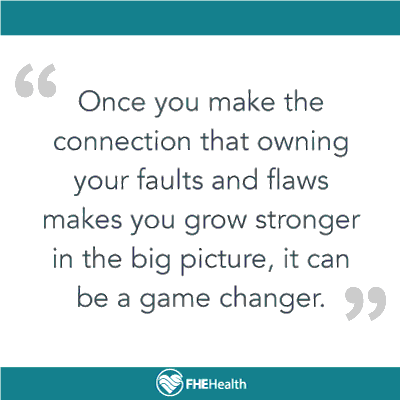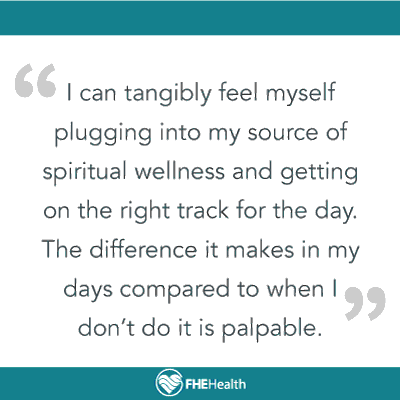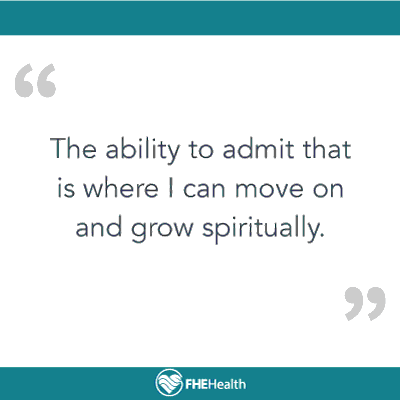
I tend to cringe a little when I hear people use the word ‘spirituality.’ That’s not at all a knock against the practice, I believe I am a very spiritual person, but I found in early recovery it was a term used so much for way too many things. I include myself in that statement. I used it too much.
When I got out of treatment and would be around a group of others in their first 6 or 8 months of recovery, it felt like a contest of who is ‘most spiritual,’ which is the antithesis of what I have found spirituality to be years later. Again, I was in that contest as well, trying to win! I was no exception.
We were all trying to be spiritual gurus on social media, especially.
As a result, my attitude towards spirituality started to mean I felt I had to be a perfect saint and treat everyone with tremendous love. It resulted in me being hard on myself and being afraid to admit to a sponsor or someone close to me that I did something dishonest, wrong, or of course, ‘not spiritual’ (that term makes me cringe).
My point is I would say I did not align with a spiritual health lifestyle until life threw me some heavy curve balls that I survived, kept my morals and principles intact, and stayed sober. That too!
Anyways, let’s look at what I believe are some core values/practices to stay spiritually well.
Getting Honest
 Honestly, it’s the first principle of the first step, and for a good reason. If there is not complete honesty in your life, then I’m sorry, but you are wasting your time on this recovery journey. Who do you need to be most honest with? Yourself.
Honestly, it’s the first principle of the first step, and for a good reason. If there is not complete honesty in your life, then I’m sorry, but you are wasting your time on this recovery journey. Who do you need to be most honest with? Yourself.
As much as it’s vital to avoid being dishonest with others, being dishonest with yourself is the biggest roadblock to spiritual living. Some ways to work on being honest with yourself would be:
- Practicing Humility – I can define humility with two words: being teachable. Acknowledging to yourself that you don’t have the answers for everything and reaching out to others for guidance is humility. Listening to constructive criticism without immediately going into defense mode is Humility. Admitting you are or may be wrong is humility.
- Transparency – Having someone you trust that you can tell anything to is massively helpful in life. Before that, you need to be transparent with yourself. Are you doing something for the wrong reason or have selfish intentions? Were you wrong or dishonest in a conflict? Are character deflects coming up? You can’t be transparent with someone until you are transparent with yourself. Own your issues, good and bad.
- Challenge Your Thinking – Challenge your belief systems and thinking. Maybe you are wrong. Perhaps you can’t do this yourself. Maybe you should follow through with that suggestion. The sooner you realize how spiritually healthy it is to do this, the better.
Once you make the connection that owning your faults and flaws makes you grow stronger in the big picture, it can be a game changer on your path towards spiritual health.
 Wouldn’t it be nice to read something enlightening or motivational and be able to apply it from that day on out? It doesn’t work like that. Our minds, especially for the
Wouldn’t it be nice to read something enlightening or motivational and be able to apply it from that day on out? It doesn’t work like that. Our minds, especially for the  The other spiritual health value that’s important to me is being of service to others when the time calls and keeping it to myself. Helping others without expecting anything in return and not needing to advertise to the world all the great things I do for others keeps my heart full and spirit high.
The other spiritual health value that’s important to me is being of service to others when the time calls and keeping it to myself. Helping others without expecting anything in return and not needing to advertise to the world all the great things I do for others keeps my heart full and spirit high.





